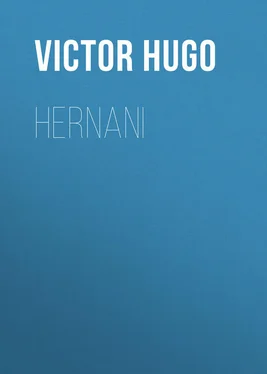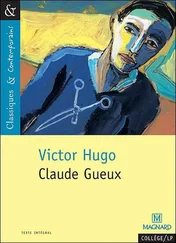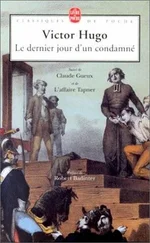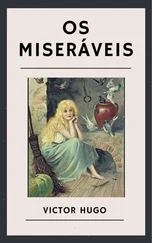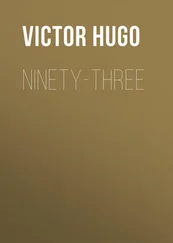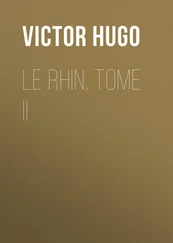Victor Hugo - Hernani
Здесь есть возможность читать онлайн «Victor Hugo - Hernani» — ознакомительный отрывок электронной книги совершенно бесплатно, а после прочтения отрывка купить полную версию. В некоторых случаях можно слушать аудио, скачать через торрент в формате fb2 и присутствует краткое содержание. Жанр: literature_19, foreign_antique, foreign_prose, на французском языке. Описание произведения, (предисловие) а так же отзывы посетителей доступны на портале библиотеки ЛибКат.
- Название:Hernani
- Автор:
- Жанр:
- Год:неизвестен
- ISBN:нет данных
- Рейтинг книги:3 / 5. Голосов: 1
-
Избранное:Добавить в избранное
- Отзывы:
-
Ваша оценка:
- 60
- 1
- 2
- 3
- 4
- 5
Hernani: краткое содержание, описание и аннотация
Предлагаем к чтению аннотацию, описание, краткое содержание или предисловие (зависит от того, что написал сам автор книги «Hernani»). Если вы не нашли необходимую информацию о книге — напишите в комментариях, мы постараемся отыскать её.
Hernani — читать онлайн ознакомительный отрывок
Ниже представлен текст книги, разбитый по страницам. Система сохранения места последней прочитанной страницы, позволяет с удобством читать онлайн бесплатно книгу «Hernani», без необходимости каждый раз заново искать на чём Вы остановились. Поставьте закладку, и сможете в любой момент перейти на страницу, на которой закончили чтение.
Интервал:
Закладка:
Félicité de Lamennais lived a life whose details belong as much to the history of philosophy, or to ecclesiastical history, as to that of belles-lettres. First a priest, and the most ardent Catholic in France, he afterward turned against Rome and led a movement towards religious independence. There are few more interesting figures, chiefly because great religious leaders have been so rare in modern France. At the time when Victor Hugo was beginning to write, Lamennais was ardently engaged in an effort to establish the supremacy of Rome, not only over private conscience, but over political institutions, and although from his subsequent actions he is known to the world as a liberal and a heretic, yet at that time, having published in 1817 his «Essai sur l'Indifférence en Matière de Religion», he was the most jealous conservative and the most fiery churchman in France.
Thus a superficial glance has sufficed to show that the first movement which stirred literary France after 1815 was a reaction in favor of monarchy and Rome; that its champions were Chateaubriand, Lamartine, and Lamennais; that its effort was mainly through poetry; that its honor was its high political and moral purity; that its defect was its sentimentality; that its ultimate inefficacy was due to its running counter to the tendency of the age. Into this movement Victor Hugo inevitably fell; by it he was for a long time carried; with it he at first kept step bravely.
At this point let us take a glance at Victor Hugo's early life. He was born in 1802, of respectable and educated parents. His father was an army officer of increasing distinction under the Empire; his mother a sympathizer with the exiled Bourbons. During Victor's early childhood he, with his mother and brothers, moved about through Italy, following his father's campaignings under Joseph Bonaparte; but when the boys were old enough to attend school their mother took them to Paris, while the father fought through a guerilla war against the brigands headed by Fra Diavolo. After several years of tranquillity in France, Madame Hugo and her sons were again called to follow the fortunes of the head of the family, this time in Spain. The father won a generalship in the French army in that conquered country, and became majordomo of the palace at Madrid. The boys attended school in a college for noblemen's sons, and were badly treated by the young Spaniards, who could not forget that the French lads were the children of one of their conquerors. But after a brief sojourn in Spain they returned to Paris, and there the poet-life of Victor Hugo began, and began in earnest; for during three years, at school and at home, he composed verses of all sorts, and in 1817, in competition for a prize offered by the National Academy, he wrote an ode which, although not successful in the contest, brought him into public notice.
The next year he won a prize in the Floral Games of Toulouse, with a poem which is published among his other works, and which is one of the most remarkable productions of precocious genius known to literary history. In 1821 he had his first taste of the bitterness of life, and his boyhood came to an abrupt termination, in the death of his excellent mother. On the same day he became engaged to a young girl who had for a long time been his schoolmate and almost a member of his own home-circle. Her parents allowed his suit, but postponed the marriage until he should have proved himself capable of supporting a family. He set to work with feverish ardor and undertook almost every kind of literary production – odes, plays, novels. The first of his successes under this new stimulus were two remarkable stories, «Bug Jargal» and «Han d'Islande», stories which indicate a strange and exuberant imagination, tropical in its fervor, its singularity, its fecundity.
But it was in 1826, by the publication of his «Odes et Ballades», that he laid the real corner-stone of his fame. The king, Louis XVIII, liked the poems, for a natural reason, as we shall see, and gave their author a pension of one thousand francs, which in those days, and in economical France, seemed a large sum, and the young people were permitted to marry. It will be interesting to observe what was the character of the «Odes et Ballades». They are almost all political and religious, and all thoroughly conservative; all in praise of the Bourbons, condemnatory of the Revolution; silent as to Napoleon, or nearly so, and glowing with devotion to the Roman Catholic Church. They remind us of what Wordsworth twenty-five years earlier wrote, in a precisely contrary spirit, when he was influenced by the hopes inspired by the first events of 1789, and before the subsequent outrages changed him into a stiff British church-and-state conservative. These early effusions of Hugo are noble pieces of versification, and wonderful enough as the works of a very young man; but they cannot be called poetry of a high order, nor do they even give promise of what he was to do later, except that towards the last we begin to find poems which bid us expect great things in the way of style.
Two years afterward, in 1828, appeared a second volume of poems, «Les Orientales», a collection of dream-pictures of Eastern life, in somewhat the same manner as the efforts of Thomas Moore which were popular with young ladies of the last generation, but infinitely superior to all the «Lalla Rookhs» and other impossibilities of that little Irish dandy. The fact is that some of Hugo's most beautiful lyrics are to be found in this collection, and certainly some of his greatest successes in passionate, highly-colored description. He was a man whose heart grew slowly, however, and we look in vain as yet for poems which could teach us much about life and how to bear it patiently or enjoy it nobly.
But we are now in the midst of the four years during which Victor Hugo was changing his attitude towards art entirely, 1826-1830. Up to this time he had not entered specially into the business of criticism, had not made theories about writing, but simply written, either celebrating his political heroes or letting his fancy wander through distant lands, which were full of glamour because distant. He had gathered about him a circle of interesting people; indeed he was already the young king of nearly all the rising literary men and women in Paris. It was natural that there should be a great deal of discussion among them about the rules and proprieties of their art; but Victor Hugo was still, in this matter as in every other, a conservative.
In 1827 he surprised this little world of admirers with a drama, «Cromwell», in the preface to which he expounded some advanced views in regard to dramatic writing. His opinions were debated, and all Paris was divided into their supporters and opponents. In 1830 appeared «Hernani», which he succeeded in having played at the Théâtre français, in spite of the opposition of the Academy, which saw in it a menace to good literature.
There are few exciting events in the history of literature. It is in the main a record of quiet, intellectual lives, a story of thoughts and tendencies. The account of a single border feud will present a greater number of striking incidents than the history of the forces which have produced our English poetry or Germany's philosophy. And the few memorable anecdotes of a concrete character which are scattered here and there in the chronicles of literature usually attract more attention than they deserve. They are suitable chiefly to awaken the interest of children and ignorant people. Out of ten persons who will tell you that Demosthenes practised oratory by the sea-shore, with a pebble in his mouth, not more than one has any notion what his orations themselves were about. The man who is most set agog by the story of Shakespeare's poaching exploit is the least likely to have read his plays. The same thing might be said of the hubbub occasioned by the first representation of Victor Hugo's «Hernani», on February 25, 1830. There is a temptation to make «Hernani» the text of disquisitions on Romanticism, forgetting that it is a drama of high intrinsic merit, and that the question of positive value is, after all, the essential one.
Читать дальшеИнтервал:
Закладка:
Похожие книги на «Hernani»
Представляем Вашему вниманию похожие книги на «Hernani» списком для выбора. Мы отобрали схожую по названию и смыслу литературу в надежде предоставить читателям больше вариантов отыскать новые, интересные, ещё непрочитанные произведения.
Обсуждение, отзывы о книге «Hernani» и просто собственные мнения читателей. Оставьте ваши комментарии, напишите, что Вы думаете о произведении, его смысле или главных героях. Укажите что конкретно понравилось, а что нет, и почему Вы так считаете.
